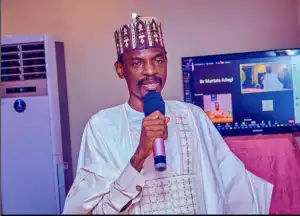Challenges Ahead Of Buhari’s Administration
.jpg?w=900&ulb=true&ssl=1)
Challenges Ahead Of Buhari’s Administration
The highly anticipated March 28th presidential and National Assembly elections have gone with Gen Muhammadu Buhari emerging as the president of Nigeria in waiting. Adesuwa Tsan writes on challenges and issues that the president-elect must urgently address when he assumes office next month.
In an unprecedented occurrence, at least in Nigeria and many other African nations, presidential candidate of the opposition All Progressives Congress (APC), Gen Muhammadu Buhari, succeeded in getting Nigerians to vote incumbent President Goodluck Jonathan out of office. The reasons are not far-fetched, a random discussion with a cross section of Nigerians show that they were tired of a 16-year Peoples Democratic Party (PDP) rule that seemed to give little back in return to the masses.
Out-going President Jonathan was vilified for not doing enough to provide security, infrastructural development, improve the economy to impact positively on the life of the common man, fight corruption, among others.
Now that another administration is set to take over, it is pertinent to note that if it fails to do better than the Jonathan led administration, like the adage goes, “the broom that was used to beat the first wife is waiting to be used on the new wife”. Meaning, Gen Buhari has to tackle these issues headlong if he seeks to retain the goodwill of Nigerians that swept him to victory at the polls.
Issues Before Buhari;
Corruption
In a recent interview with CNN’s Christiane Amanpour, Gen Buhari said that he would fight corruption in Nigeria at every level, while acknowledging the enormity of the scale it has taken in the country.
Nigeria is the most populous country in Africa and despite years of democracy, corruption has hindered the nation from building a stable economy, affecting almost every sector of the Nigerian life.
Many argue that President Jonathan didn’t do enough to tackle corruption, noting that no bigwig was prosecuted successfully in his 6-year tenure, while statements credited to him portrayed an attitude that encouraged corruption.
[ads4]
One of the biggest stains on the Goodluck Jonathan administration was allegation of corruption, and in particular a lack of transparency on oil revenues. Over $20bn in oil revenue at the state-owned Nigerian National Petroleum Corporation (NNPC) is said to be held back from the treasury. A Price Waterhouse Coopers audit into the NNPC oil accounts has not been published by the government.
Thus, Buhari must hit the ground running by matching words with action to send a strong message of change to corrupt elements in the society. There is no point stressing that if corruption is drastically reduced in the country, or in the words of Gen Buhari, eradicated, there would be notable impact in dividends of democracy in the lives of Nigerians.
He has said that now that he has been elected he will “plug holes” in the “corruption infrastructure” in the country.
Economy
[1.] Big economy, small income: According to statistics, Nigeria has Africa’s biggest economy, but up to 70% of Nigerians live on less than a dollar a day, translating to a big economy with little income.
Therefore, the economy is another major issue that the new administration must focus on.
Nigeria overtook South Africa last year as the region’s largest economy. Nigeria is one of Africa’s largest oil producers and is a major supplier of crude oil to the United States. It also hosts many international oil companies and workers but many complain that the country’s vast wealth from oil exports doesn’t trickle down to the average citizen.
[2.] Falling Oil Prices: This will also pose a challenge to revenue generation for the incoming government. Oil represents 90 per cent of Nigerian exports and 70 per cent of government revenues. Needless to say, the recent dramatic drop in oil prices has had a devastating effect on the economy. Exports to the US have fallen as a result of its success in shale exploitation.
The fall in oil prices has forced the government to cut spending and triggered a sell-off in Nigeria bond and stock markets. Buhari will also need to address the ongoing problem of theft hampering companies operating in the region. Shell, who sold off a some of its Nigerian assets last year, said it lost 60,000 barrels a day due to theft in the Niger Delta region.
3. Currency
Another damaging effect of falling oil prices has been the weakening of the naira to its lowest level in 16 years. The Central Bank of Nigeria has twice had to devalue the currency in recent months and raised its benchmark interest rate from 12 to 13 per cent.
Diversifying The Economy
Agriculture, mining, tourism and other sectors of the economy that have potential to shore up revenue generation for Nigeria outside oil sales, must be pursued vigorously by Buhari’s government to increase the fortunes of the country.
Security
One of Buhari’s biggest challenges will be finding a permanent solution to the Boko Haram group, which has been terrorising Nigeria; killing her citizens and destroying properties, especially in the North-eastern states, as it tries to institute a strict version of Sharia law in the country.
In the past few years, the terror group has bombed churches and mosques, killed hundreds of people and kidnapped more than 200 teenage girls from a boarding school in Chibok, Borno State. Earlier, the group murdered over 200 school boys in their boarding school in Buni Yadi, Yobe State.
Even the presidential election earlier scheduled to hold in February.
[1.] had to be postponed because of the radical militants.
During the elections on Saturday, the northeastern state of Gombe was attacked by these insurgents, with at least 11 people killed in attacks at polling stations.
The capital city, Abuja, also suffered attacks from the group, with attacks on the UN building and two deadly bomb blasts in Nyanya, a suburb in the city.
Jonathan’s administration was criticised for not doing enough to combat Boko Haram, leading to a desire for any leadership that could create a sense of security to the people.
The activities of the group also affected commerce. In Kano, which has suffered from Boko Haram attacks, business activity dropped by 80 per cent in the past three years, according to estimates from the local chamber of commerce. Instability in the north-eastern states has only deepened the economic divide between the north and the oil-rich south and practically eliminated the thriving fish market in the region.
The role that poverty plays in the insurgency must aalso be addressed. Despite its status as an Africa economic powerhouse, poverty is still widespread in Nigeria. According to the United Nations’ most recent multi-dimensional poverty index, over 67 per cent of Nigerians live below the poverty line. Grappling rising unemployment will be a crucial goal for Buhari, who has promised to invest in mining and agriculture to boost employment outside of the oil industry.
Buhari must live up to his promise that he’ll “rapidly give attention” to curbing violence in the northeast part of Nigeria, where the terrorist group Boko Haram operates.
He believes that by cooperating with neighbouring nations of Chad, Cameroon and Niger, his administration will be able to thwart criminals and others contributing to Nigeria’s instability.
Oil Sector Reform
More than 70 percent of government revenues come from the oil and gas sector, which makes up less than 15 percent of GDP. This mismatch has distorted the entire economy, concentrating money and power in a narrow, well-connected and heavily politicised demographic and stunting the development of other sectors. Addressing this will require a combination of institutional reform—such as fixing the tax administration—and political will in taking on entrenched elites and vested interests within Nigeria’s systems of governance.
Buhari must not put in the political will and the credibility to ensure that the necessary reforms are put in motion in the sector to implement a system that sees the gains from proceeds in the petroleum industry trickling down to the average Nigerian.
Efforts should be concentrated for the passage and implementation of the Petroleum Industry Bill (PIB) to give room for wide and effective positive changes in the industry.
The rise of the US shale industry and the decline in oil prices have reduced Nigeria’s strategic importance, and although its sheer scale lends it a degree of relevance on the African stage, Buhari will need to demonstrate leadership on regional issues if the country is to return to international prominence.







![Omen (2023) [French]](https://www.memesng.com/r/storage.waploaded.com/images/dd54298bd08f79f59778ef388478cff6.jpg?w=50&ulb=true&ssl=1)
![Blue Star (2024) [Tamil]](https://www.memesng.com/r/storage.waploaded.com/images/7b1acd6b27a0d18ac40211103dae2c82.jpg?w=50&ulb=true&ssl=1)













![City of the City (2024) [Chinese] (TV series)](https://www.memesng.com/r/storage.waploaded.com/images/d27c49f481ac044d15f9737010f90054.jpg?w=50&ulb=true&ssl=1)
![Chief Detective 1958 (2024) [Korean] (TV series)](https://www.memesng.com/r/storage.waploaded.com/images/d3a3dd4ef4baf5cb4372f8cc9d0e691e.jpg?w=50&ulb=true&ssl=1)
![Queen of Tears (2024) [Korean] (TV series)](https://www.memesng.com/r/storage.waploaded.com/images/d084fc52cdb684624bbe23f7cef54bb9.jpg?w=50&ulb=true&ssl=1)
![Missing Crown Prince (2024) [Korean] (TV series)](https://www.memesng.com/r/storage.waploaded.com/images/af432e156fad64999983341626730ac3.jpg?w=50&ulb=true&ssl=1)
![In the Name of the Brother (2024) [Chinese] (TV series)](https://www.memesng.com/r/storage.waploaded.com/images/2180542a937cbc9bfc75df3c941b75d5.jpg?w=50&ulb=true&ssl=1)
{{comment.anon_name ?? comment.full_name}}
{{timeAgo(comment.date_added)}}
{{comment.body}}
{{subComment.anon_name ?? subComment.full_name}}
{{timeAgo(subComment.date_added)}}
{{subComment.body}}